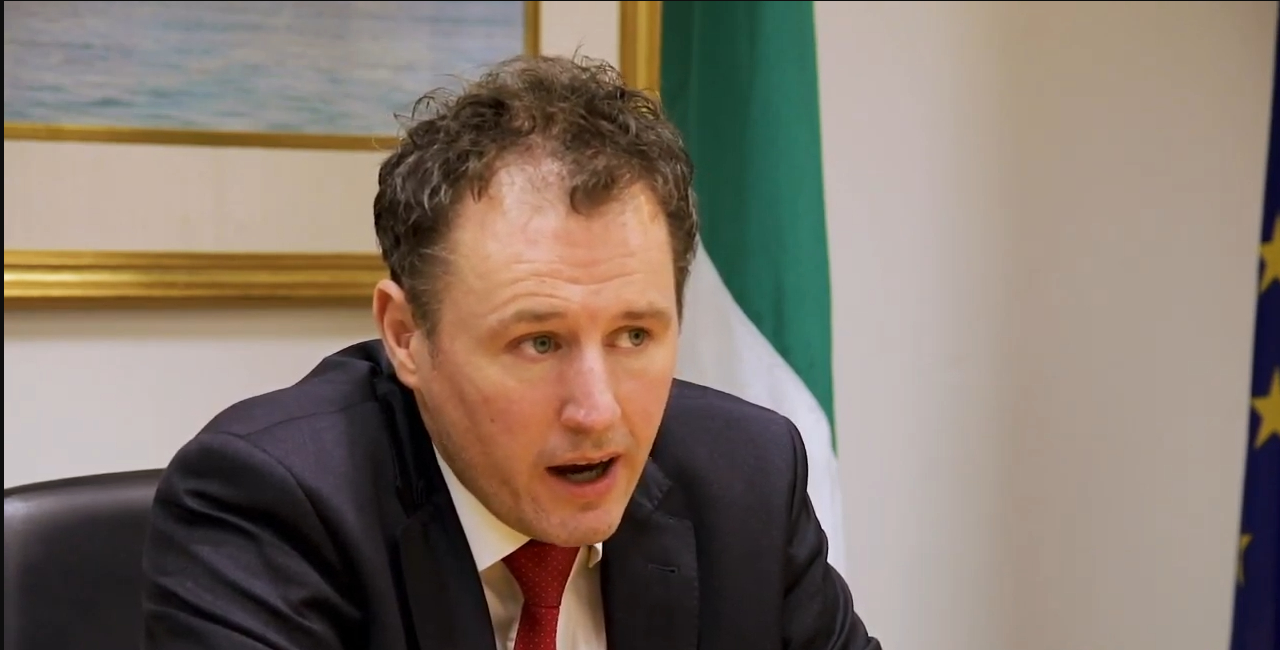There are sufficient supplies of feed and fertiliser in Ireland to keep the agri-food sector going for “the next number of months”, according to Minister for Agriculture, Food and the Marine, Charlie McConalogue.
The minister was speaking in response to a parliamentary question (PQ) posed by T.D. Colm Burke about the Department of Agriculture, Food and the Marine’s (DAFM) engagement on import substitution for certain agricultural produce that has been impacted by Russia’s invasion of Ukraine.
The minister acknowledged that at a farm level, one of the most severe impacts of the conflict has been the rise in cost of inputs, including animal feed, fertiliser and fuel. However, he said:
“I have been assured that there is a sufficient supply of animal feedstuffs and fertiliser in the country, although at elevated prices, for the next number of months.
“My department is in regular contact with feed merchants and fertiliser importers to ensure any disruption to supply chains is kept to a minimum.”
Impact of conflict on fertiliser and feed
In his response to the question, the minister said that the agricultural consequences of Russia’s invasion of Ukraine for Ireland remain the number one priority for him and his department, and he is continuing to take action to address them.
Minister McConalogue said he is meeting with key stakeholders in the agri-food and marine sectors on “an ongoing basis” to discuss the impacts the war is having on supply chains, particularly in relation to the viability of farmers as primary producers.
The European Commission announced a package of measures to assist the sector on March 23, 2022, which includes a €500 million package to support farmers most affected. Under this package, Ireland will receive an allocation of €15.8 million.
“I will be examining ways to best mobilise this support as soon as possible, taking account of the detailed requirements and conditionality attached to this exceptional aid provision,” the minister said.
Pig sector
Referencing actions he has already taken in response to the crisis, the minister mentioned the formation of the National Fodder and Food Security Committee, the formation of a Rapid Response Team to monitor agri-food supply chains, and the rollout of the €7 million emergency aid scheme for pig farmers.
Speaking about the pig sector, the minister said the impacts resulting from the conflict will be felt most sharply there, where feed costs represent a significant portion of overall production costs.
“The department is in contact with the main banks on an ongoing basis in relation to the challenge facing pig farmers; the finance instruments funded by my department through SBCI [Strategic Banking Corporation of Ireland] offer an important source of flexible low-cost finance,” he said.
The minister also said that the EU package mentioned includes plans to deploy safety net measures to support specific markets, including private storage aid for pigmeat.
“By working collectively and collaboratively, I am determined to ensure that the sector is insulated against the worst of what might come from supply chain disruptions.
“This period is one of the biggest challenges our sector has faced in recent years, and I am committed to supporting our farm families throughout this period,” the minister concluded.
